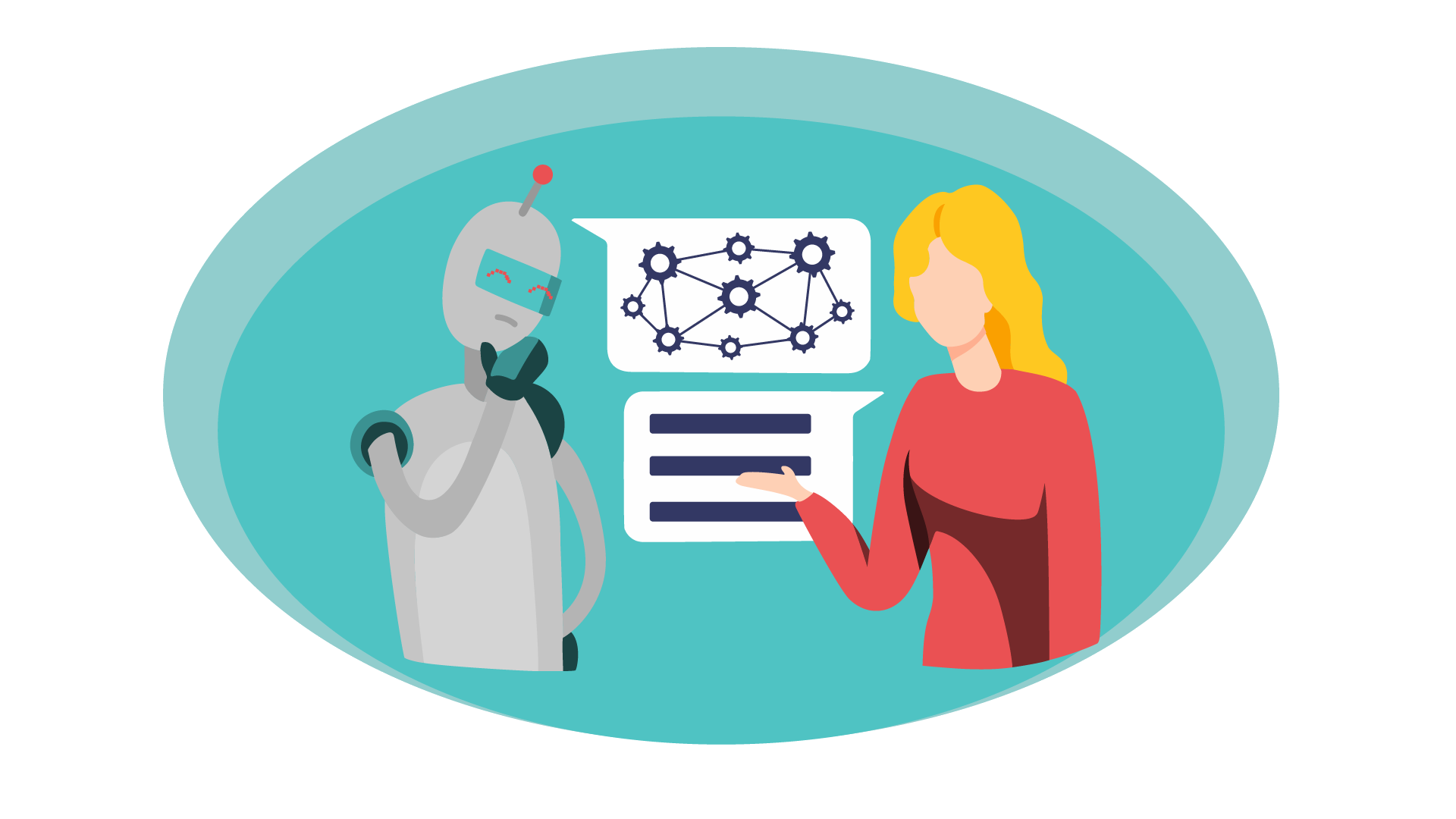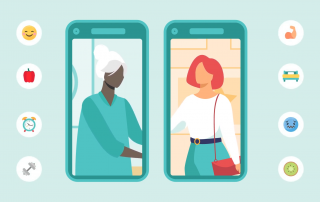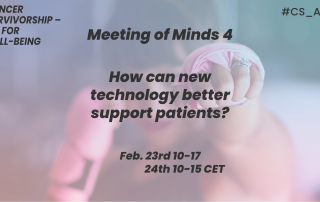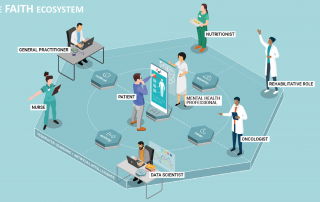
Technology and Artificial Intelligence (AI) are establishing themselves in healthcare with innovative applications. These have the potential to reshape the healthcare system – supporting health teams to better follow up their patients after discharge, for instance.
AI deals with building smart machines able to perform tasks that usually need human intelligence. At the basis of any AI there are algorithms; the harder the task, the more complex the algorithms ruling it. Ideally, a good AI is capable of rationalising and taking actions to achieve a specific goal. Ultimately, FAITH will deploy a specific kind of AI, called Machine Learning, to analyse depressive markers and effectively predict negative trends.
Machine Learning is currently used to find patterns in large amounts of data. Think of the recommendations given by search engines on our Internet browsers, for example. Interestingly, Machine Learning’s peculiarity is that the more data is fed to the system, the better it gets at making decisions.
Another interesting concept is Natural Language Processing (NLP). NLP allows machines to understand, interpret and manipulate human language. Basically, NLP is what allows the voice assistant in our phone to understand and talk to us. By combining Machine Learning and NLP, FAITH wants to create a tool that will benefit patients and healthcare providers. The tool will accurately monitor cancer patients’ and survivors’ mental health, and alert their health team when necessary.
In fact, society has only scratched the surface of how technology and AI applications can revolutionise healthcare. Read our articles to find out how the FAITH project is bringing together technology and cancer care to help patients and survivors.










